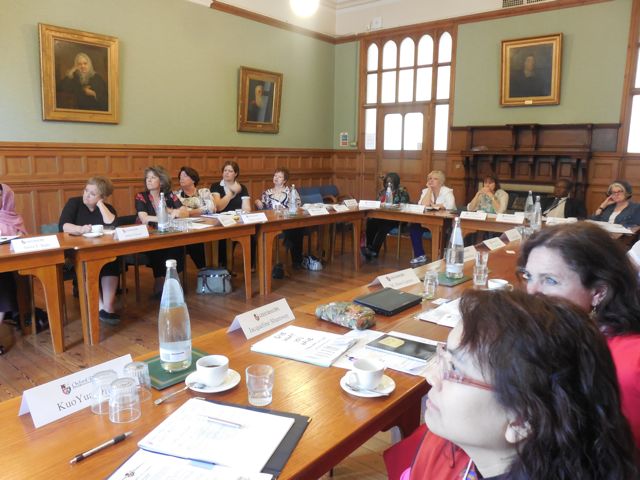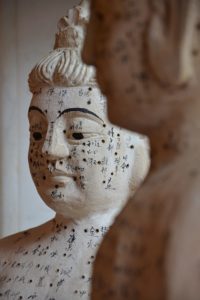The Oxford Study Fall Lecture Series: University of Denver’s Osher Lifelong Learning Institute
As health care costs continue to skyrocket, it is of international importance to find new approaches in preventive medicine. The Oxford study lectures are part of a longterm study in integrative medicine and lifelong learning. Students can participate in important research of interest to the University of Denver’s Osher Lifelong Learning Institute, the Oxford International Round Table, Harris Manchester College in the University of Oxford and Harvard Medical School’s, Osher Institute on Integrative Medicine. The purpose of these studies is to bridge the gap between world class research and community health promotion. These lectures will introduce students to the latest findings in research being conducted at the the University of Denver’s OLLI, that may help determine future directions for lifelong learning here at OLLI and around the world.
To register for the series go to https://portfolio.du.edu/olli/page/79984
All new topics
Week 1 – Lifelong Learning: Improving Cognitive Function
September 17th 9:30 am – 11:30 am Park Hill United Methodist Church
To register for the series go to https://portfolio.du.edu/olli/page/79984
“LIVE AS IF YOU WERE TO DIE TOMORROW. LEARN AS IF YOU WERE TO LIVE FOREVER.”
– Mahatma Gandhi
In the modern world we all need to be lifelong learners. The fast pace of the modern world means we can now become obsolete faster than ever before. At the same time the modern technological world gives us access to new ideas and new experiences from all around the world just waiting to be explored. A recent Pew research survey found that 73% of people consider themselves lifelong learners and participate in activities that they are particularly interested in. At no phase of life is this more important than as we get older. To stay sharp and relevant people are encouraged to continue learning throughout their lifetimes, whether on our own through self-directed learning or in adult education and continuing education classrooms. Although the life-long learning trend is likely to continue as baby boomers age, actual research showing the benefits of continuing education in older adults is still limited. Learn how to stay sharp and make learning an adventure.
Week 2 – The Mediterranean Diet: Tasty and Healthy Eating
September 24th 9:30 am – 11:30 am Park Hill United Methodist Church
To register for the series go to https://portfolio.du.edu/olli/page/79984
The Mediterranean diet is a heart-healthy eating plan that focuses on eating foods that mainly come from plants, such as whole grains, legumes, nuts, fruits and vegetables. It substitutes healthy fats like olive oil instead of butter, replacing salt with anti-oxidant rich herbs and spices and consuming a lot more fish and chicken, instead of red meat. This course aims to introduce participants to the typical Mediterranean diet and offers you an exciting journey to explore cultures and traditions of the Mediterranean countries and how they differ when it comes to recipes, and cooking methods. If you’re looking for a healthy and delicious eating plan, the Mediterranean diet might be right for you. The Mediterranean diet incorporates scientifically valid healthy eating recommendations with lot’s of flavor and perhaps a glass of red wine typical of the traditional cooking style of countries bordering the Mediterranean. Most healthy diets include fruits, vegetables, fish and whole grains, and limit unhealthy fats learning to prepare them in convenient and flavorful ways may make a big difference in your risk of heart disease.
Week 3 – Taoist Yoga: Mindfulness Meditation and Traditional Chinese Medicine
October 1st. 9:30 am – 11:30 am Park Hill United Methodist Church
To register for the series go to https://portfolio.du.edu/olli/page/79984
Taoist yoga or Qigong meditation, has been an integral part of traditional Chinese Medicine since the Yellow Emperor’s Classic on Internal Medicine. Recently the subject of much research at the Osher Institute on Integrative Medicine at the Harvard Medical School it has been shown to provide a wide range of potential benefits to practitioners in the modern world. One review of 77 random controlled trials showed that this form of meditation improved bone density, cardiopulmonary function, physical function, reduced falls and related risk factors, improved Quality of Life, self-efficacy, psychological wellbeing, and immune function. Learn some simple meditations to give it a try for yourself and discover one of the world’s oldest and most revered forms of mindfulness meditation.
Week 4 – Wisdom and Mastery: Isn’t that the point of getting older anyway?
October 8th. 9:30 am – 11:30 am Park Hill United Methodist Church
To register for the series go to https://portfolio.du.edu/olli/page/79984
The key to building a healthier life and a healthier world is self-efficacy, we first have to believe we can make the changes we need to live healthier lives. According to former Surgeon general C. Everett Koop, we already know how to empty half the hospitals in the United States, we know how to empty half the nursing homes. The key to making this happen is a concept called self-efficacy or self mastery. Bandura’s theory of self-efficacy has been applied in many areas of healthy behavior change including smoking cessation, pain control, eating problems, cardiac rehabilitation, and adherence to regimens. It has been found that a strong sense of personal power or self- efficacy is related to better health, higher achievement, and more social integration. Self-efficacy makes a difference in how people feel, think and act. In terms of feeling, a low sense of self-efficacy is associated with depression, anxiety, and helplessness. This concept works in diverse areas such as as school achievement, emotional disorders, mental and physical health, career choice, and sociopolitical change. It has become a key variable in clinical, educational, social, developmental, health, and personality psychology. Self-efficacy or personal power refers to one’s belief in the ability to do a specific behavior. Are you a victim in life and in health or are you an active participant in a vigorous life?
The answer to that question may be the secret to the quality of our lives. This class will examine self-efficacy theory, describe how to build your own personal power,. Learn the four steps toward achieving a sense of mastery in your own life.
About the Speaker
Joseph Brady MSTCM, L. Ac. Dipl. O.M. is a nationally board certified practitioner of Oriental Medicine. Joe taught on healthy aging issues and coordinated the Gerontology program at the University of Denver for twenty years, also teaching classes in Tai Chi, Qigong and Traditional Chinese Medicine at the University of Colorado Health Sciences Center, Metropolitan State College of Denver and currently teaches Tai Chi and Qigong at the Colorado School of Traditional Chinese Medicine. Joe wrote many articles on healthy aging for the Rocky Mountain News and has presented at many scientific conferences and has lectured and presented research at Harvard Medical School’s Osher Institute for Integrative Medicine, Oxford Union Debating Hall and Harris Manchester College, Oxford University U.K.



